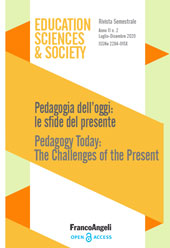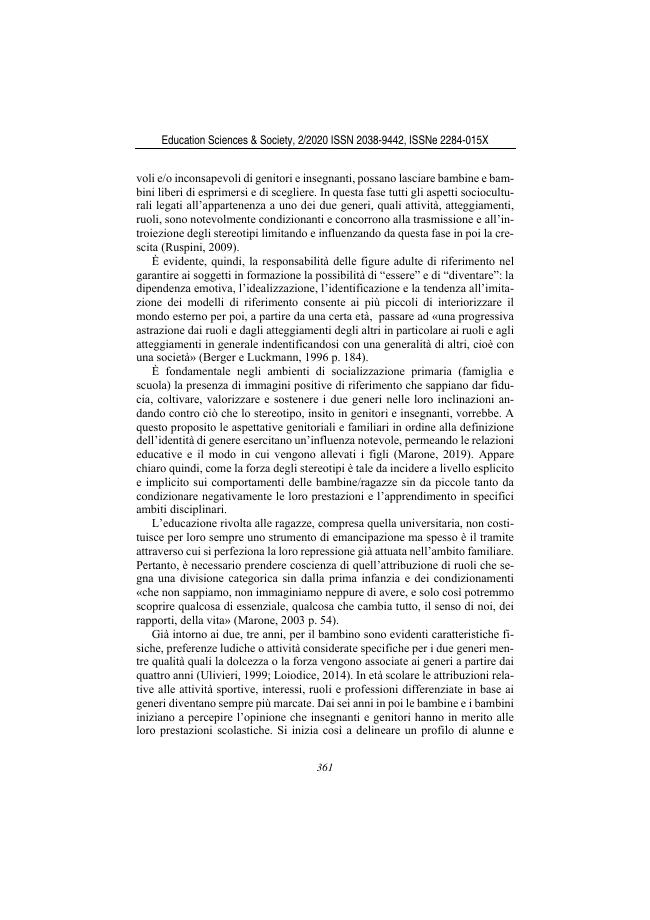L'educazione di genere tra teoria e prassi : itinerari di ricerca per l'infanzia
P. 366-366
Il superamento del gender gap nei percorsi di studio, in particolare in quelliscientifici, necessita di una formazione attenta alle differenze fin dai primi gradidell'istruzione. L'interesse verso le differenti discipline presenti nel curricoloscolastico tende a manifestarsi proprio durante le prime fasi di scolarizzazioneinfluenzando, in modo determinante, le scelte formative e professionali future.È fondamentale considerare l'influenza che la famiglia e la scuola esercitanonell'indirizzare, seppur in modo implicito, le bambine/ragazze verso un determinatopercorso di studio e quindi poi professionale e riconoscere l'importanzadell'educazione soprattutto nella prima fase di vita.
In questa prospettiva, allaluce delle recenti evidenze neuroscientifiche, il contributo intende riflettere sulruolo che la scuola di base e i relativi ambienti di apprendimento possono svolgerenella decostruzione di stereotipi e pregiudizi attraverso gli stimoli offertidai docenti che, grazie alle loro capacità relazionali, saranno in grado di orientarele pratiche educative e cogliere in ogni alunna/alunno l'unicità, il suo essereirripetibile e portatore della propria diversità. [Testo dell'editore]
The overcoming of the gender gaps in the study pathways, especially in thescientific ones, requires an attentive training to the differences from the firstgrades of education. The interest in the various disciplines in school curriculatends to manifest itself precisely during the early stages of schooling,influencing, in a decisive way, future training and professional choices. It isessential to consider the influence that the influence that families and schools,young women or female students, in an implicit way, female children/girlstowards a certain course of study, and therefore professional, and recognize theimportance of education especially in the first phase of life.
From this perspective, in the framework of recent neuroscientific evidence, this piece ofresearch intends to reflect on the role that primary school band its learningenvironments can play in the deconstruction of stereotypes and prejudicesthrough the stimuli offered by teachers, who thanks to their relational skills, willbe able to guide educational practices and grasp the uniqueness of each pupil,their unrepeatable being and bearer of their own diversity. [Publisher's text]
Fait partie de
Education Sciences & Society : 2, 2020-
Articles du même numéro (disponibles individuellement)
-
Informations
Code DOI : 10.3280/ess2-2020oa9485
ISSN: 2038-9442
KEYWORDS
- Educazione, Infanzia, Neuroscienze, Gender Gap, Educazione di genere, STEM
- Education, Childhood, Neuroscience, Gender gap, Gender education, STEM



